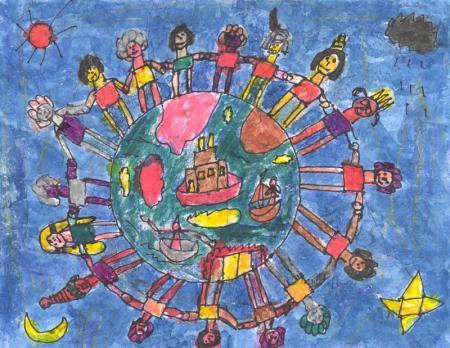 The editor of L'Encyclopédie de L'Agora and well known newspaper chronicler and philosopher, analyses actuality through the looking glass of Belonging.
The editor of L'Encyclopédie de L'Agora and well known newspaper chronicler and philosopher, analyses actuality through the looking glass of Belonging.
Humanity
Humanity – or post-humanity? We can belong to one or the other. Humanity is given to us, by God or by nature, but it comes with imperfection. Post-humanity – humanity enhanced by chemistry and technology – is something we choose, in the hope of bringing us closer to perfection. But it comes with a risk. By opting for perfection, we risk creating a world that does not tolerate imperfection or disability. In such a world, “mistakes” of birth must be avoided – or if that isn’t possible, they must be repaired. Yet it is precisely these “imperfect gifts” that inspire our tenderness. If they disappear, we will lose the sense of our own radical, metaphysical frailty – the source of the compassion that distinguishes us from mere machines. So are we really talking about post-humanization here – or planned dehumanization?
Illustration by Claude Maclean, L'Arche Beloeil, Québec, Canada
We amputate part of our humanity, we lose our integrity when we are dispossessed – in favour of “experts” – of powers as essential as the ability to console another human being. The result is that our sense of belonging is diminished, because it is to the extent that we feel in possession of our abilities that we are able to forge rich and varied ties with one another.
Six videos on The Betrayal by Technology. Depth and simplicity!
L'être humain
"At the heart of every human being, from earliest infancy to the tomb, there is something that, even in the teeth of all experience of crimes committed, suffered, or witnessed, nevertheless indomitably expects good and not evil to be done toward him or her. It is this, above all, which is sacred in every human being."
Simone Weil, Écrits de Londres et dernières lettres.
Newsletter
Jacques Dufresne's
Blog
 The editor of L'Encyclopédie de L'Agora and well known newspaper chronicler and philosopher, analyses actuality through the looking glass of Belonging.
The editor of L'Encyclopédie de L'Agora and well known newspaper chronicler and philosopher, analyses actuality through the looking glass of Belonging.
Loneliness affects one in ten people in France
Preventing Home Foreclosures - a Promising Innovation in Philadelphia













